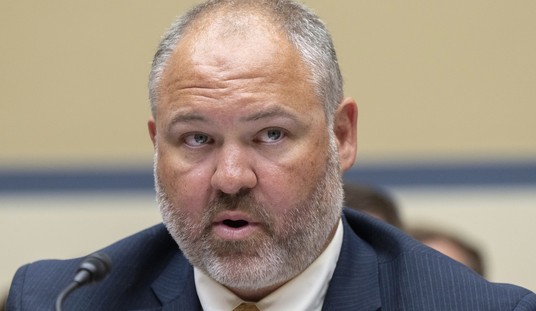The ACLU, PETA, and the Animal Legal Defense Fund won a major First Amendment case yesterday — and it should delight pro-life activists. The state of Idaho passed a law forbidding the use of undercover and other secret surveillance for journalistic purposes, a protection of the dairy and meat industries that had suffered public-relations disasters at the hands of exposés conducted by animal-rights activists. A federal judge overturned the law yesterday, ruling it a violation of free speech. Boise Weekly celebrated the win, and noted its own risks under the “ag-gag” law:
In April 2011, Boise Weekly visited a Jerome livestock auction as part of our award-winning investigation where we discovered high levels of drugs found in cattle linked to Idaho dairies (BW, News, “Got Milk? Got Drugs? Got Both?” April 6, 2011).
But auction officials weren’t too pleased with our presence—going so far as to manhandle our photographer and call us “terrorists.” But if a 2014 measure pushed through the Idaho Legislature and signed into law by Governor C.L. “Butch” Otter had been in effect at the time, we would have faced up to a year behind bars and fines of up to $5,000. …
And in a ruling issued Monday by B. Lynn Winmill, Chief Judge of the U.S. District Court for Idaho, the court found that the State’s argument in favor of the law was “narrowly tailored to protect private property” and “the State completely ignores that food production is not a private matter.”
“The remedy for misleading speech, or speech we do not like, is more speech, not enforced silence,” wrote Winmill.”The Court finds that [the Ag-Gag law] violates the First Amendment.”
The Chief Judge also wrote that, “Although the State may not agree with the message certain groups seek to convey about Idaho’s agricultural production facilities, such as releasing secretly-recorded videos of animal abuse to the Internet and calling for boycotts, it cannot deny such groups equal protection of the laws in their exercise of their right to free speech.”
These “ag-gag” restrictions have been proposed in several states, but only passed into law in a few, including Iowa and Utah in 2012. They are a relatively new phenomenon, pushed along undoubtedly by the low-cost barrier to entry for the kind of covert videography required. As I wrote earlier today, broadcasters have used the undercover-infiltration model for decades, but now activists can easily conduct similar investigations — and have.
The ACLU expresses its delight over the ruling:
The statue [sic] criminalizes undercover investigations that document animal welfare, worker safety, and food safety violations at an “agricultural production facility,” thus “gagging” speech that is critical of industrial agriculture, including speech that advances significant public interests in protecting Idahoans’ safety. Under this law, journalists, workers, activists, and members of the public can be convicted for documenting animal cruelty or life-threatening safety violations. The court ruled that this statute violates the First Amendment by suppressing speech that criticizes factory farms and was motivated by unconstitutional animus against animal advocates—which is a violation of the Equal Protection clause of the Fourteenth Amendment.
Undercover video and photography has exposed numerous shocking practices that are “industry standards.” These pervasive, systematic procedures include routine mutilation, including debeaking birds with electrically heated blades and castrating male animals by slicing open their scrotum and ripping their testicles out without pain relief or anesthesia and intensive confinement—where animals are literally unable to turn around for months on end. Exposes have also detailed the sickening farming conditions resulting in contaminated meat products—posing serious health risks to the public—and life threatening conditions for farm workers.
That brings us to the pro-life cause. In San Francisco, a federal judge has placed a prior restraint on exactly the same kind of speech. The Center for Medical Progress conducted undercover investigations into Planned Parenthood, StemExpress, and the National Abortion Federation (among others, possibly) that “exposed numerous shocking practices” that are apparently “industry standards.” Judge William Orrick issued a temporary restraining order blocking that speech largely on the basis of the non-disclosure agreements (NDAs) that CMP’s investigators signed to gain access to industry meetings and officials. However, most employers require new hires to sign an NDA, even those gaining employment in order to expose illegal or abusive practices. They’re generally meaningless when used in this manner, and more so when it comes to whistleblowing. Orrick is reaching on this TRO.
Since this decision came at the district court, it carries no formal precedential weight — yet. If the state chooses to appeal this ruling, and they will have to do so to continue enforcement of its ag-gag law, an appellate court will have the opportunity to establish a precedent by upholding this ruling, and it would be shocking if it did not. That would come in the same appellate district as California (9th), which means a precedent here would pertain to federal courts in San Francisco. The only question might be which case gets to the 9th Circuit first, but the outcome wouldn’t likely change in any case.
So here’s an exit question, to borrow the phrase from my esteemed co-blogger: When will the ACLU take up CMP’s case in San Francisco? I’d guess that will happen at roughly the same time that media outlets file amicus briefs on behalf of CMP to protect undercover journalism, which I predict will roughly be … never.









Join the conversation as a VIP Member